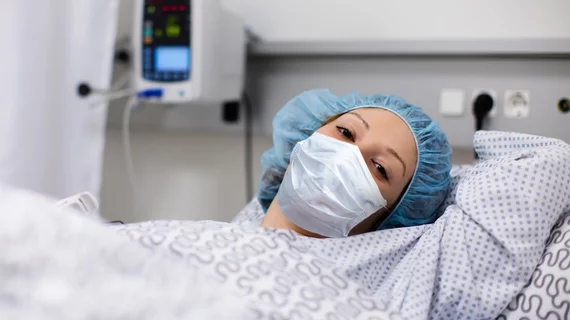A decrease in routine health screenings, such as mammograms and colonoscopies, during the early days of COVID appears to have led to an increase in advanced stage cancer diagnoses.
Previous studies have suggested that cancer screenings dropped by more than 80% during the initial stages of COVID-19, but research published this week in JAMA Network Open takes a closer look at how that decrease has impacted cancer diagnoses and staging. The most recent research conducted at Moores Cancer Center at University of California San Diego Health compared the changes in early- and late-stage breast and colorectal cancer diagnoses from before and after the first year of the pandemic.
“Cancer screening is crucial to the early detection of cancer, particularly in colorectal and breast cancers where many early-stage cancers can be treated and cured,” senior author Kathryn Ann Gold, MD, at Moores Cancer Center and professor of medicine at UC San Diego School of Medicine, and colleagues explained.
The study analyzed 55 men and 467 women who presented to Moores Cancer Center after a new cancer diagnosis or for a second opinion in 2019 and 2020. The staging of colorectal and breast cancers was then compared for the two years.
For breast cancer, the total number of new diagnoses for 2019 and 2020 remained similar, however, the staging of those cancers revealed significant differences. Patients presenting with stage 1 disease accounted for 63.9% of cancer diagnoses in 2019, but in 2020 that number decreased to 51.3%.
Concerningly, the number of patients diagnosed with stage 4 disease increased from 1.9% in 2019 to 6.2% in 2020. The experts noted that this trend was similar in colorectal cancer diagnoses, but not on as great of a scale as breast cancer.
“There is increasing concern regarding the effect of the COVID-19 pandemic on cancer mortality, as the evidence suggests that the number of patients presenting at late, incurable stages is increasing,” the doctors cautioned.
The authors of the study went on to encourage individuals to consult with their physicians about resuming routine health screenings, especially their mammograms and colonoscopies, as they can detect diseases in their earliest stages.
“Patients who have delayed preventative care during the pandemic should be encouraged to resume treatment as soon as possible,” the doctors said.
You can view the detailed research on JAMA Network Open.

